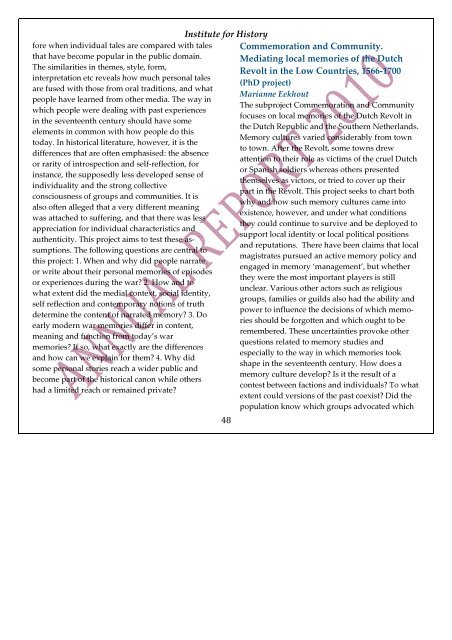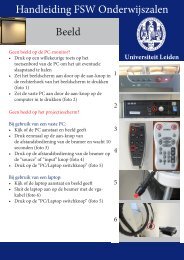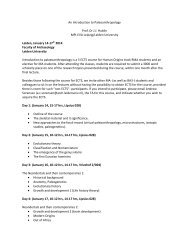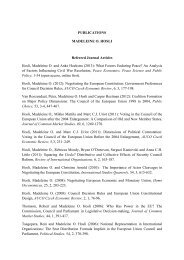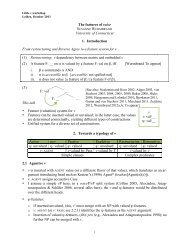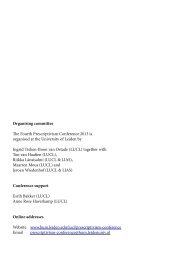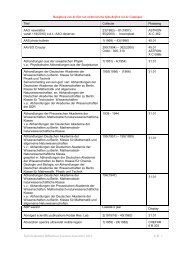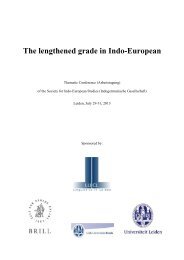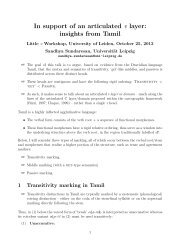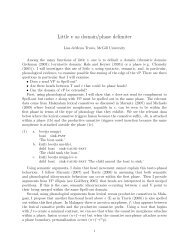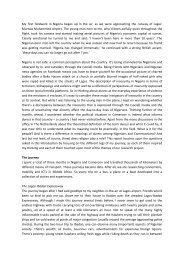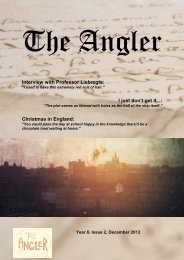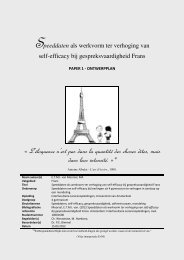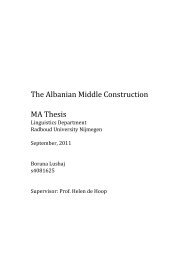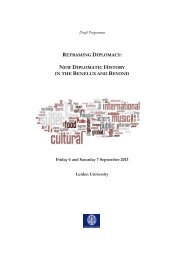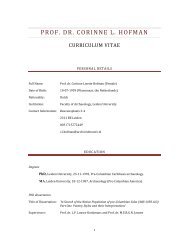Institute for History Annual Report 2010 - O - Universiteit Leiden
Institute for History Annual Report 2010 - O - Universiteit Leiden
Institute for History Annual Report 2010 - O - Universiteit Leiden
You also want an ePaper? Increase the reach of your titles
YUMPU automatically turns print PDFs into web optimized ePapers that Google loves.
<strong>for</strong>e when individual tales are compared with tales<br />
that have become popular in the public domain.<br />
The similarities in themes, style, <strong>for</strong>m,<br />
interpretation etc reveals how much personal tales<br />
are fused with those from oral traditions, and what<br />
people have learned from other media. The way in<br />
which people were dealing with past experiences<br />
in the seventeenth century should have some<br />
elements in common with how people do this<br />
today. In historical literature, however, it is the<br />
differences that are often emphasised: the absence<br />
or rarity of introspection and self-reflection, <strong>for</strong><br />
instance, the supposedly less developed sense of<br />
individuality and the strong collective<br />
consciousness of groups and communities. It is<br />
also often alleged that a very different meaning<br />
was attached to suffering, and that there was less<br />
appreciation <strong>for</strong> individual characteristics and<br />
authenticity. This project aims to test these assumptions.<br />
The following questions are central to<br />
this project: 1. When and why did people narrate<br />
or write about their personal memories of episodes<br />
or experiences during the war? 2. How and to<br />
what extent did the medial context, social identity,<br />
self reflection and contemporary notions of truth<br />
determine the content of narrated memory? 3. Do<br />
early modern war memories differ in content,<br />
meaning and function from today’s war<br />
memories? If so, what exactly are the differences<br />
and how can we explain <strong>for</strong> them? 4. Why did<br />
some personal stories reach a wider public and<br />
become part of the historical canon while others<br />
had a limited reach or remained private?<br />
<strong>Institute</strong> <strong>for</strong> <strong>History</strong><br />
48<br />
Commemoration and Community.<br />
Mediating local memories of the Dutch<br />
Revolt in the Low Countries, 1566-1700<br />
(PhD project)<br />
Marianne Eekhout<br />
The subproject Commemoration and Community<br />
focuses on local memories of the Dutch Revolt in<br />
the Dutch Republic and the Southern Netherlands.<br />
Memory cultures varied considerably from town<br />
to town. After the Revolt, some towns drew<br />
attention to their role as victims of the cruel Dutch<br />
or Spanish soldiers whereas others presented<br />
themselves as victors, or tried to cover up their<br />
part in the Revolt. This project seeks to chart both<br />
why and how such memory cultures came into<br />
existence, however, and under what conditions<br />
they could continue to survive and be deployed to<br />
support local identity or local political positions<br />
and reputations. There have been claims that local<br />
magistrates pursued an active memory policy and<br />
engaged in memory ‘management’, but whether<br />
they were the most important players is still<br />
unclear. Various other actors such as religious<br />
groups, families or guilds also had the ability and<br />
power to influence the decisions of which memories<br />
should be <strong>for</strong>gotten and which ought to be<br />
remembered. These uncertainties provoke other<br />
questions related to memory studies and<br />
especially to the way in which memories took<br />
shape in the seventeenth century. How does a<br />
memory culture develop? Is it the result of a<br />
contest between factions and individuals? To what<br />
extent could versions of the past coexist? Did the<br />
population know which groups advocated which


